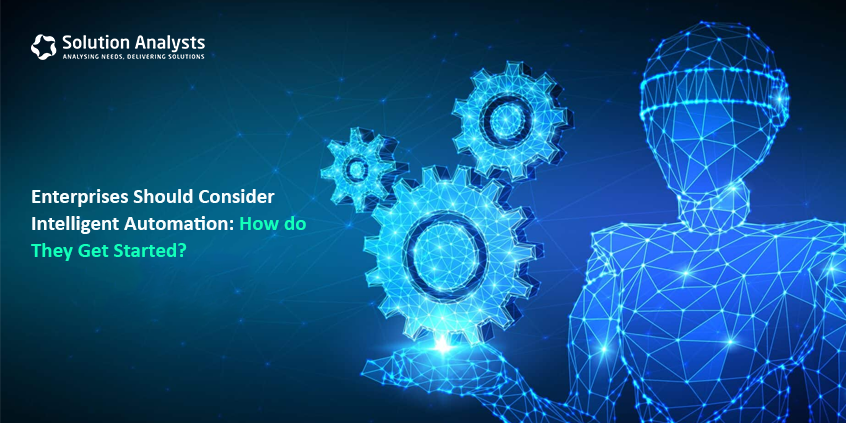
Table of Contents
Technology and its smart implementation have increasingly become important for industries. Regardless of industry type and size, embracing intelligent outcomes and workflow has turned into a primary goal for businesses to stay ahead of the competition. Intelligent automation is a term that stands out above all others.
However, as businesses grow and scale with time, the implementation of intelligent automation brings uncertainty for them. As a consequence of lack of knowledge and sheer complexity comes along, the majority of companies are struggling to implement automation solutions intelligently.
The reason companies are constantly stepping into the process of implementing intelligent automation is because they recognize that many complex tasks still rely on human input, and they believe that automation can improve these processes even further. By automating these tasks, companies hope to enhance efficiency, productivity, and overall performance.
We need to understand the meaning of intelligent automation and how AI and machine learning play a role in it.
Intelligent Automation: Know What It Is
Intelligent automation generally refers to utilization of enhanced technology tools such as computer vision, artificial intelligence, machine learning, natural processing language and robotic process automation. Unlike the traditional approach of rule based automation, intelligent automation is much more beyond it.
Intelligent automation integrates human as well as machine intelligence altogether in order to create a workflow that is more accurate, efficient and adaptable. Besides, businesses commonly embrace it to automate repetitive tasks, improve decision making, and increase productivity while reducing cost and errors.
For example, intelligent automation can help automotive manufacturers to optimise their production processes, reduce human errors, and enhance the quality of their products. Similarly, pharmaceutical or life sciences companies can leverage intelligent automation to streamline their operations, and increase efficiency, particularly in repetitive and time-consuming tasks. Additionally, insurance providers can benefit from IA by automating tasks such as calculating payments, predicting future claims, and addressing compliance requirements.
Overall, intelligent automation can bring significant benefits to various industries by improving their workflows, productivity, and bottom line.
An Overview of Intelligent Automation Statistics
Here are a few crucial statistics on intelligent automation. These statistics demonstrate the significant growth and impact of intelligent automation across various industries, highlighting its potential to transform the way businesses operate and deliver value to their customers.
1. The global intelligent automation market size was valued at $11.6 billion in 2020 and is projected to reach $23.7 billion by 2026, growing at a CAGR of 12.8% during the forecast period, according to MarketsandMarkets.
2. The use of artificial intelligence and automation has the potential to increase productivity by up to 40%. (Source: Accenture)
3. The adoption of artificial intelligence and automation will generate $13 trillion in economic activity by 2030. (Source: McKinsey Global Institute)
4. By implementing intelligent automation, a leading healthcare provider was able to process claims 600% faster, improving the overall efficiency of their operations and enhancing customer experience. (Source)
3 Major Components of Intelligent Automation (IA)
Intelligent automation covers 3 major components that are mentioned below. By integrating these three components enable automation service providers to create powerful solutions that push business and technology transformation more quicker than ever. Let’s have a look into the components:
Cognitive Technologies:
Ruling technologies that empower machines to understand, reason, and learn from the data and interact with humans. Such technologies are artificial intelligence, machine learning, natural processing, and computer vision. These technologies offer power to intelligent Automation solutions to predicate, analyze the pattern and trends, and provide a recommendation.
Robotic Process Automation:
RPA is one of the emerging technologies that are mostly used to develop software robots that perform rule based tasks and activities. It involves the creation of a digital workflow that particularly can perform tasks such as data entry, invoice processing, and customer services.
Advance Analytics:
Another and most crucial component of IA is advanced analytics. IA (Intelligent Automation) systems use advanced analytics on gathering data in order to provide insight and help businesses to make data-driven decisions. It also includes data mining, predictive analytics, and perspective analytics.
How Does Intelligent Automation Help Your Business?
Intelligent Automation is gaining momentum at a higher degree with the passing time. The benefits it offers have enabled it to surpass various other emerging technologies and gain the attention of a wide range of businesses. Improve efficiency of operations and enhance desirable output are some common benefits served by intelligent process automation.
This section we will explore the some crucial benefits of intelligent automation and artificial intelligence automation:
Increased Efficiency:
IA (Intelligent Automation) has capabilities to automate repetitive, mundane and time-consuming tasks. As a reflection, it allows business to free up employees to focus on more complex and value-added work. This can lead to increased productivity and efficiency.
Cost Savings:
IA can reduce the need for manual labor and streamline processes, resulting in cost savings for businesses. This can be particularly beneficial for small and medium-sized businesses that have limited resources.
Improved Accuracy:
IA systems can perform tasks with a high degree of accuracy, reducing the risk of errors and improving the quality of work. Moreover, reduce the possibilities of being stuck in bundler.
Better Customer Experience:
With Intelligent automation businesses can provide better customer service by automating processes such as order fulfillment, customer support, and complaint handling. This can lead to improved customer satisfaction and loyalty. Moreover, make business easier to convert them into their word-of-mouth to attract potential customers.
Faster Decision Making:
As we mentioned, data analytics is one of the critical components that convert data into insights through a data analyzing approach. IA can analyze large amounts of data quickly and provide insights that can help businesses make faster and better-informed decisions.
Scalability:
Intelligent automation systems or intelligent process automation can be scaled up or down depending on business needs, market demand and trends that allow businesses to adapt to changing market conditions and customer demands more easily.
Intelligent Automation: Five Steps to Getting Started
Intelligent automation is the clear combination of artificial intelligence automation and robotic process automation. The solution made up through this combination helps organizations and businesses to efficiently complete the repetitive task quickly with minimum or zero error rate.
Hence, to achieve a greater degree of efficiency and productivity in business workflow, businesses are preferring intelligent automation at an extended level. Are you also looking to upgrade your business then here are the top 5 steps you need to follow to get started with intelligent process automation.
1. Identify the Right Processes and Approach:
Automating business processes (IA) begins with identifying those processes or tasks that can be automated at an advanced level. Considering standardized, repetitive, rule-based, and manual processes will benefit you in more than one way. Afterward, start with a small set of processes and gradually scale up as you gain more experience and get a clear understanding.
2. Map the Processes and Tasks:
Once you have successfully identified the processes or tasks presently conducted through a manual approach or under the intervention of human beings, the next step is to map those processes. If simply put, map processes in detail, and note down the input, outputs, and steps involved in each process to conclude it successfully. This stage assists you to identify the areas which can be automated.
3. Choose the Right Automation Tools:
As the digital era is growing at a fast pace, it is common that you will find several automation tools in the market. Amongst the huge list of automation tools and software choosing the right tool is critical for the success of your automation initiative. Look for tools that are easy to use, flexible, and can integrate with your existing systems. Evaluate multiple vendors and choose the one that best suits your needs. You can also partner with Artificial Intelligence App Development Services.
4. Build and Test Automation:
Once you have selected the best automation tool, build and test the automation. Start with a small pilot and gradually scale up as you gain more experience. Make sure you involve the end-users in the testing phase to ensure that the automation meets their requirements.
5. Monitor and Optimize the Automation:
After the automation is deployed, continuously monitoring and keeping track of it is critical to ensure that it is running smoothly. Collect data and analyze it to identify areas for improvement. Optimize the automation regularly to ensure that it is delivering the expected benefits.
Concluding Lines on Intelligent Automation
Is efficiency a pain point for your business? Are your valuable resources still struggling to bring more productivity as they are more engaged in manual time-consuming activities? Then you have to reshuffle your thought of bringing digitalization in the form of intelligent automation. Need expert help? We, A team of Solution Analysts, are here to assist you!
We are a renowned IT services provider that holds expertise in offering Artificial Intelligence App Development Services and AI And ML in Mobile Application Development. We helped businesses with all vertices including manufacturing, healthcare, finance, and other. By implementing wide expertise, we have solved the business efficiency and productivity problems.





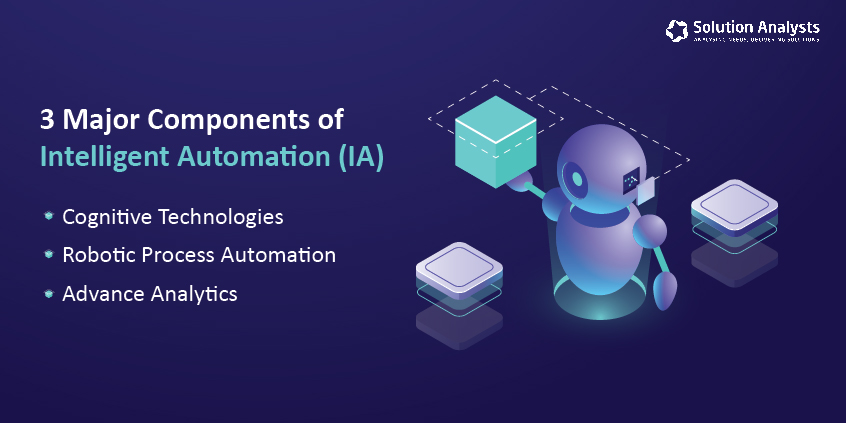

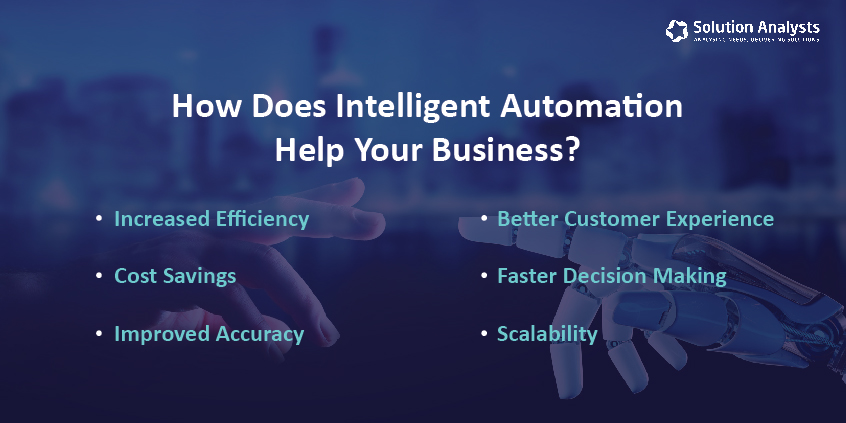
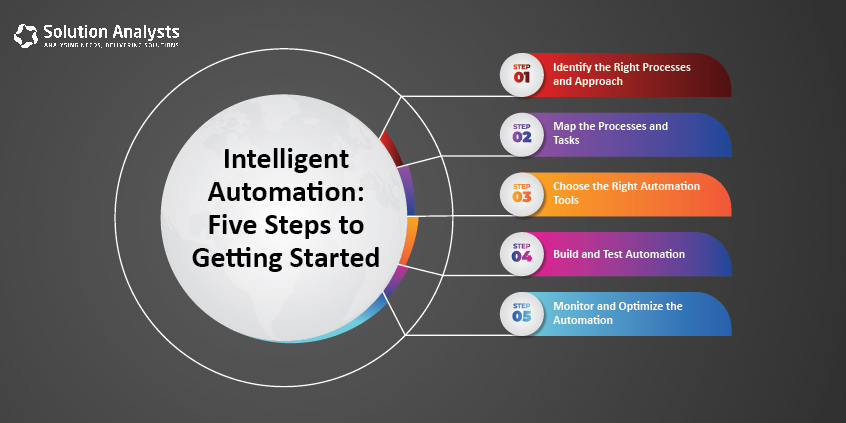



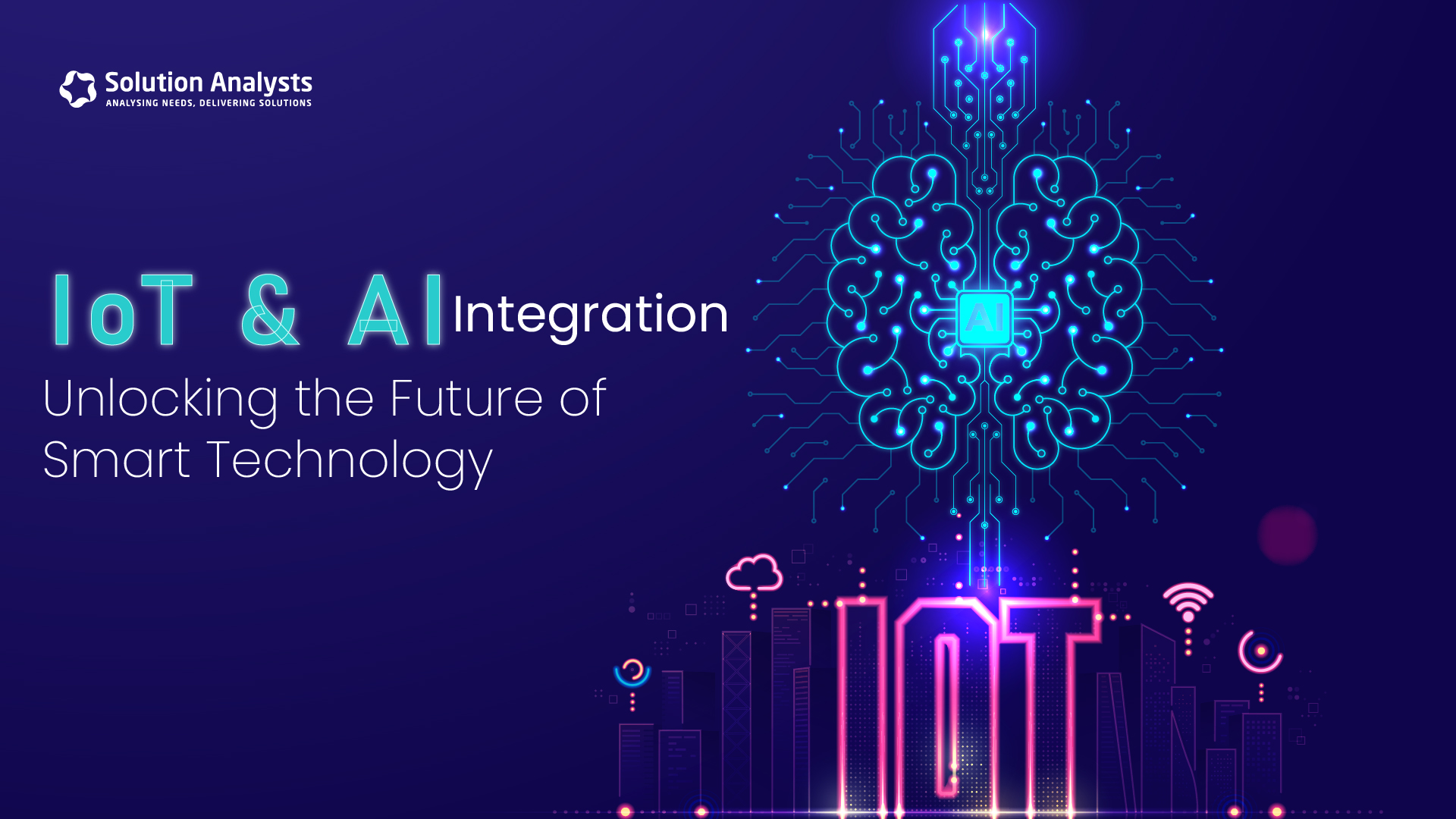
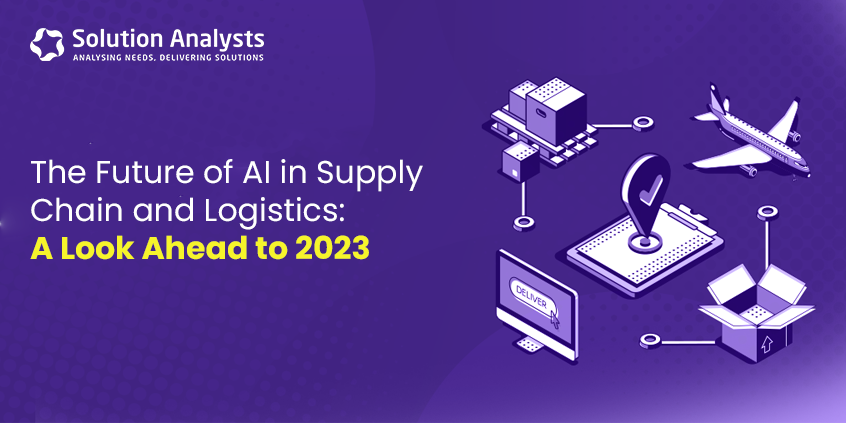
 sales@solutionanalysts.com
sales@solutionanalysts.com biz.solutionanalysts
biz.solutionanalysts






